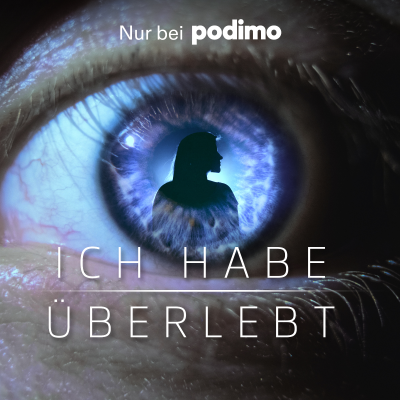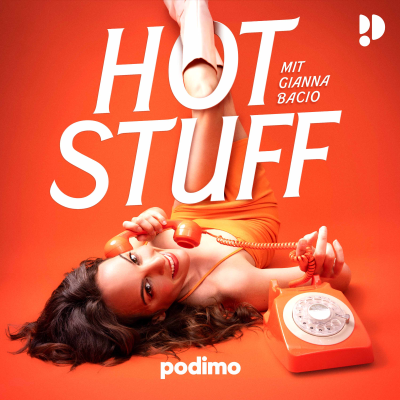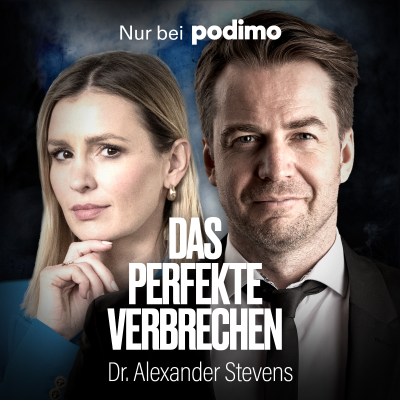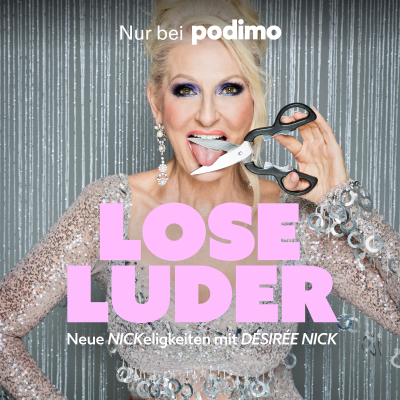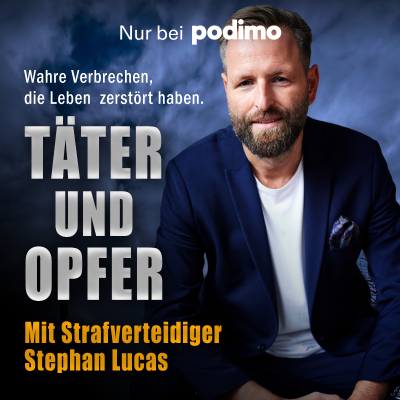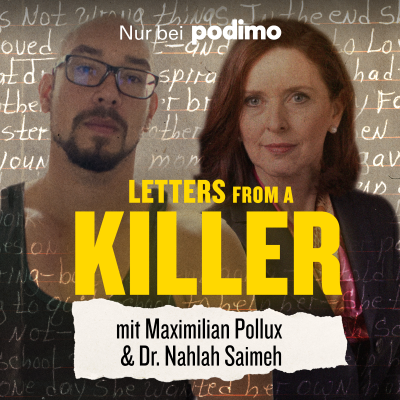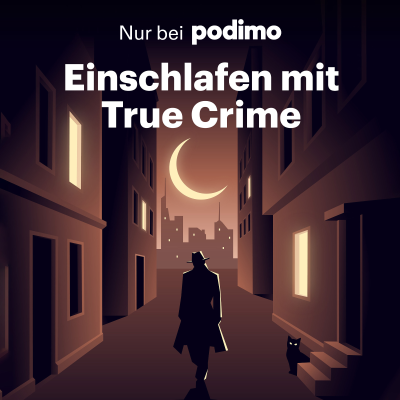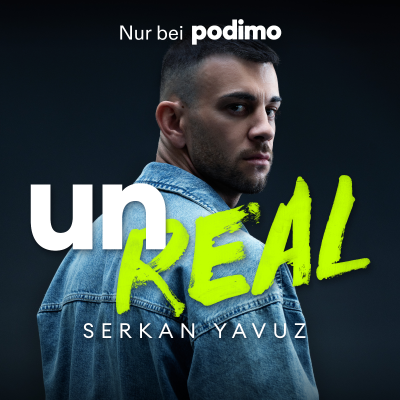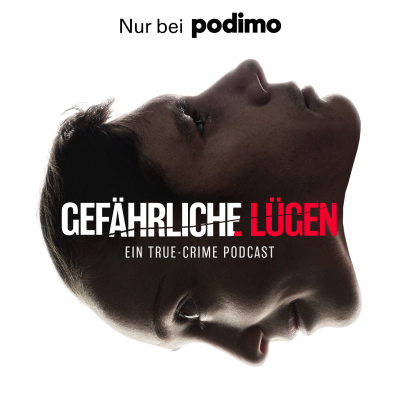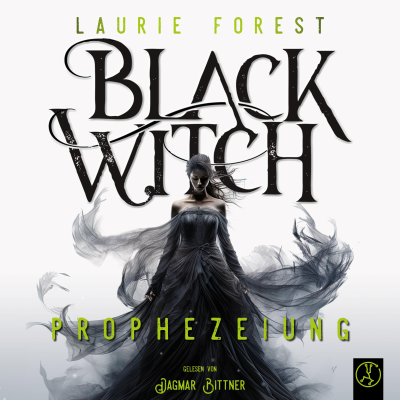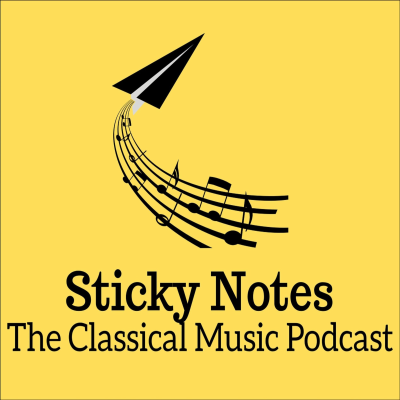
Sticky Notes: The Classical Music Podcast
Englisch
Kostenlos bei Podimo
Kostenlos hören bei Podimo
Starte jetzt und verbinde dich mit deinen Lieblingspodcaster*innen
- Vertraut von über 1 Mio. deutschen Hörer*innen
- Über 1.000 lokale Podcasts und Shows – nur bei Podimo
- Keine Zahlung nötig
Mehr Sticky Notes: The Classical Music Podcast
Sticky Notes is a classical music podcast for everyone, whether you are just getting interested in classical music for the first time, or if you've been listening to it and loving it all your life. Interviews with great artists, in depth looks at pieces in the repertoire, and both basic and deep dives into every era of music. Classical music is absolutely for everyone, so let's start listening! Note - Seasons 1-5 will be returning over the next year. They have been taken down in order to be re-recorded in improved sound quality!
Alle Folgen
420 FolgenBrahms Symphony No. 2 LIVE w/ The Aalborg Symphony
Brahms spent much of his adult life battling with his ambition to write the next great symphony and his terror at the shadow of Beethoven standing behind him. Brahms tortured himself for 14 years with his first symphony, and only published it when he was 49 years old. But when that symphony finally came out, it was a relative success for a new work, and with immense relief, Brahms quickly turned out another symphony in just 4 months. Brahms' first symphony was quickly dubbed "Beethoven's 10th" something that annoyed Brahms to no end. When told that the main theme of the last movement resembled the Ode to Joy, he notoriously responded, "any ass can see that!" But all the same, Brahms had been re-anointed as Beethoven's successor with the symphony, and so therefore his second symphony would also be given a Beethovinian name, Pastoral. The question since the symphony has been written has been this: just how pastoral and idyllic is this symphony? Many commentators see an unadulterated joy and gentleness in the piece, with some melancholy moments to be sure. But overall, the piece is as sunny as it seems on its surface, with just the typical battles between happiness and sadness that mark every symphony. But there's another school fo thought with this symphony, and that is that it is marked by shadows and tremors that go way beyond simple sadness and happiness, and that these shadows and tremors leave a mark that can't be ignored. I tend to believe in the second theory, but we're going to discuss this symphony with this framework in mind; whether this piece is as sunny as some people would have you believe, or if the shadows are the lasting impression we get as we walk away from the concert hall. We'll also discuss Brahms' innovations with form, and his evergreen ability to write some of the most stunning melodies on the planet. Join us!
Zemlinsky: The Mermaid
The story of Alexander von Zemlinsky's The Mermaid begins with a passionate love affair and ends in heartbreak of the most unabashedly big-R Romantic kind. In 1900, the young, fabulously talented, and famously beautiful Alma Schindler came to Zemlinsky's home to study composition. Wildly passionate feelings soon developed between them, and Alma wrote the following in her diary: "I would gladly be pregnant for him, gladly bear his children. His blood and mine, commingled: my beauty with his intellect. I would gladly serve him in his professional life, live for him and his kith and kin, breathe [for him], attend to his every happiness, serve him with a gentle hand. God give me the strength and the willpower to do so." The relationship lasted a little over a year, until one night when Schindler attended a party that happened to be frequented by a brilliant conductor and composer twenty years her senior: Gustav Mahler. The rest is history. Zemlinsky was devastated and poured his energies into a tone poem based on Hans Christian Andersen's The Little Mermaid. The source may seem surprising, but as we'll see later on, it proved to be the perfect vehicle for Zemlinsky to exorcise the tortured memories of this turbulent relationship. For a long time, however, the score was lost. It wasn't until the 1980s that the full work was reconstructed, and it has since become one of Zemlinsky's most frequently performed pieces. And it's not hard to see why. The Mermaid is a forty-minute tone poem that, from start to finish, overflows with fin-de-siècle romanticism, very much in the vein of Schoenberg's Verklärte Nacht (Transfigured Night). It is a work of irresistible beauty and passion, and it is being played more and more as Zemlinsky's name begins to take its rightful place in the standard canon of composers. Today on the show, I'll tell you a bit more about Zemlinsky in case you're not familiar with him, read more of the unbearably passionate letters and diary entries from both Zemlinsky and Alma Schindler, and, of course, walk you through the heartbreakingly beautiful music of The Mermaid, showing how Zemlinsky balances narrative and abstract form, and how he created this opulent, lush, and profoundly moving score. Join us!
Pergolesi Stabat Mater
Many aspects of Giovanni Battista Pergolesi's life seem relatively normal when it comes to composers of the Baroque era. He was prolific, died young, and his music became very famous only after his death. However, all three of these facts are complicated by the unique circumstances of Pergolesi's life. He was somewhat prolific, but dozens of pieces that were once attributed to him are no longer considered authentic, including much of the music that Igor Stravinsky made famous in his ballet Pulcinella. Pergolesi did not just die young; he died remarkably young, at the age of twenty-six, from tuberculosis. And the idea that he became famous only after his death actually made him unusual among composers of his time, when popularity during one's lifetime was the primary mark of success. Most composers quickly fell into obscurity after they died. In Pergolesi's case, the opposite occurred. There was a massive surge of interest in his music immediately after his death, which in some ways contributed to the museum-like atmosphere that classical music has today. Pergolesi was ahead of his time in many ways, and that brings us to the piece we are going to talk about today, his Stabat Mater. We will discuss what the Stabat Mater is in more detail later, but simply put, it is a musical setting of the poem Stabat Mater Dolorosa, which, in a rather clumsy translation, means "the sorrowful mother stood." This thirteenth-century Christian hymn and poem focuses on the Virgin Mary's suffering as she witnesses the crucifixion of Jesus. The text has been set to music by many composers, but Pergolesi's version, surprisingly given his relative obscurity today, has endured in a way that many settings by more famous composers have not. Today, on this Patreon-sponsored episode, we will learn a bit about Pergolesi's life, or at least what we know of it, and talk through this Baroque-era masterpiece. Join us!
Rachmaninoff Piano Concerto No. 2
We humans seem to love comeback stories, and there is no comeback quite as compelling in the classical music world as Rachmaninoff's Second Piano Concerto. It was written three years after the disastrous premiere of his First Symphony, a premiere so catastrophic that it lives on in the annals of musical history, and is the essential starting point for understanding the Second Piano Concerto and how it came to be. The concerto revived both Rachmaninoff's career and his spirits, and it remains his most famous orchestral work. It is a towering masterpiece of Romanticism, overflowing with glorious melody after glorious melody, supported by virtuosic and sumptuous writing for the solo piano, and a deeply satisfying orchestral part that continues to make audiences swoon around the world. Today on the show, we'll begin with the story of Rachmaninoff's First Symphony, and then walk through this extraordinary concerto, highlighting what truly makes Rachmaninoff's music so special. Hint: it's not just the pretty melodies. Recording: Vladimir Ashkenazy with the Moscow Philharmonic Orchestra, Kirill Kondrashin cond.
Handel Messiah w/ Aram Demirjian
A piece that I have been asked to cover probably a dozen times is Handel's Messiah. It's a piece I love, but a piece that I've never conducted or played, and so therefore I don't know it incredibly well. There are plenty of pieces like this in the repertoire, and so I've decided to start a new series on Sticky Notes, which will be to take pieces that I don't know very well and to bring on experts to help me learn about them. This series will be a bit sporadic, and won't disrupt the but I'm really excited to share the first episode in this series, all about the Handel Messiah, featuring my good friend and the wonderful conductor Aram Demirjian, the Music Director of the Knoxville Symphony! I really hope you enjoy this episode and that you have a Happy Holidays and New Year!



